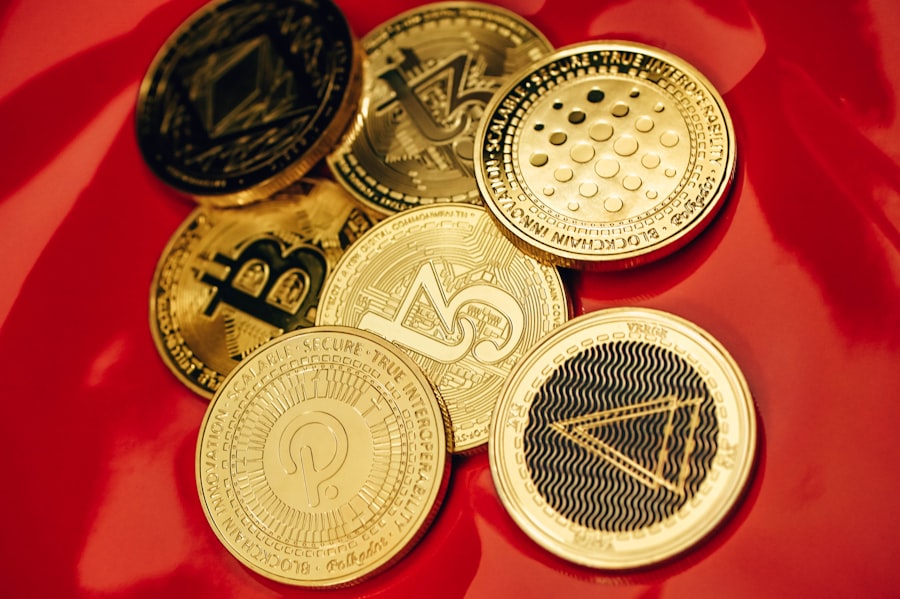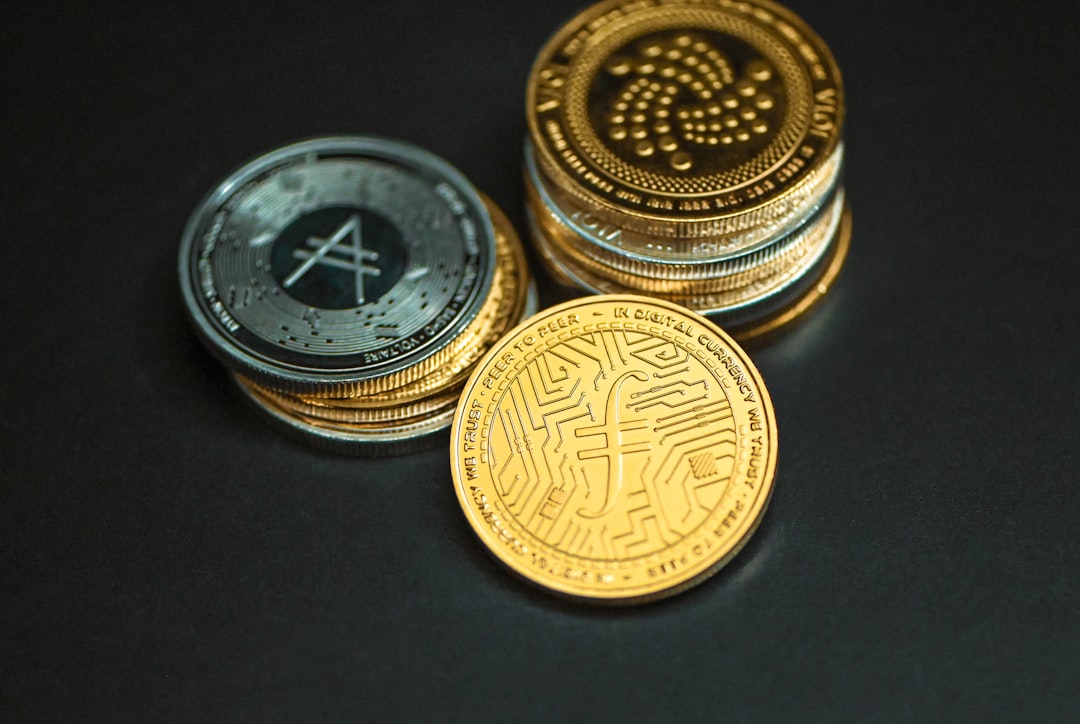Fiat currency, the money you use every day, is a concept that has become deeply embedded in modern economies. Unlike commodity money, which is backed by physical assets like gold or silver, fiat currency derives its value from the trust and confidence that you and others place in it. This trust is often reinforced by government backing, as most nations declare their currency to be legal tender for all debts, public and private.
The transition to fiat currency has allowed for greater flexibility in monetary policy, enabling governments to respond to economic challenges more effectively. However, this system is not without its drawbacks, and understanding these implications is crucial for navigating the financial landscape. As you engage with fiat currency, it’s essential to recognize that its value can fluctuate based on various factors, including economic performance, political stability, and market sentiment.
The reliance on trust means that any erosion of confidence can lead to significant consequences. In a world where digital transactions are becoming increasingly common, the implications of fiat currency extend beyond physical cash. You may find yourself questioning the stability of your financial assets and the broader economic system as you witness the complexities of fiat currency in action.
Key Takeaways
- Fiat currency is government-issued currency that is not backed by a physical commodity, such as gold or silver.
- Inflation erodes the purchasing power of fiat currency, leading to economic instability and market volatility.
- Devaluation of savings and investments occurs as a result of government control and manipulation of the money supply.
- Income inequality and wealth redistribution are exacerbated by the loss of confidence in the financial system and increased debt and financial risk.
- The global economic impact of fiat currency includes the rise of alternative currencies and financial systems as people seek alternatives to traditional fiat currency.
Inflation and Loss of Purchasing Power
Inflation is one of the most significant challenges associated with fiat currency. As you may have experienced firsthand, inflation erodes the purchasing power of your money over time. When prices rise, the same amount of currency buys fewer goods and services than it did previously.
This gradual decline in purchasing power can be particularly concerning for individuals on fixed incomes or those who do not see their wages increase at the same rate as inflation.
The causes of inflation can be multifaceted, ranging from increased demand for goods and services to supply chain disruptions.
Central banks often respond to inflation by adjusting interest rates or implementing other monetary policies. However, these measures can have unintended consequences, such as slowing economic growth or increasing unemployment.
Economic Instability and Market Volatility

Economic instability is another critical concern linked to fiat currency systems. You may have noticed that financial markets can be highly volatile, with stock prices fluctuating dramatically in response to news events or changes in economic indicators. This volatility can create uncertainty for investors and consumers alike, making it challenging to plan for the future.
When economic conditions are unstable, you might feel hesitant to make significant purchases or investments, fearing that market fluctuations could lead to losses. The interconnectedness of global economies means that instability in one region can have ripple effects worldwide. For instance, a financial crisis in one country can lead to decreased consumer confidence and reduced spending in others.
As you observe these trends, it becomes clear that economic stability is crucial for fostering a healthy environment for growth and investment. Understanding the factors that contribute to market volatility can empower you to make more informed financial decisions and better prepare for potential downturns.
Devaluation of Savings and Investments
| Factors | Impact |
|---|---|
| Inflation | Reduces the purchasing power of savings and investments over time |
| Interest Rates | Low interest rates can lead to lower returns on savings and investments |
| Market Volatility | Can lead to fluctuations in the value of investments |
| Currency Depreciation | Can reduce the value of investments denominated in a foreign currency |
As you consider your financial future, the devaluation of savings and investments is a pressing concern in a fiat currency system. When inflation outpaces the interest rates offered by traditional savings accounts, the real value of your savings diminishes over time. This means that even if you diligently save money, its purchasing power may decline, leaving you with less than you initially intended when it comes time to use those funds.
Investments are not immune to this phenomenon either. While some assets may appreciate over time, others can lose value due to economic shifts or changes in market sentiment. You might find yourself grappling with the challenge of selecting investments that will not only keep pace with inflation but also provide a reasonable return on your investment.
This balancing act can be daunting, especially when considering the long-term implications for your financial security.
Income Inequality and Wealth Redistribution
Income inequality is a pervasive issue that often exacerbates the challenges associated with fiat currency systems. As you navigate your financial landscape, you may notice that wealth is increasingly concentrated among a small percentage of the population. This disparity can lead to social unrest and a sense of disenfranchisement among those who feel left behind by the economic system.
The mechanisms of fiat currency can inadvertently contribute to this inequality, as monetary policy decisions may favor certain sectors or demographics over others. Wealth redistribution becomes a contentious topic in discussions about economic policy. You might find yourself questioning whether government interventions are necessary to address income inequality or if they could further complicate the situation.
The debate surrounding taxation, social programs, and minimum wage laws often centers on finding a balance between promoting economic growth and ensuring that all individuals have access to opportunities for advancement.
Government Control and Manipulation of Money Supply

The control of money supply by governments and central banks is a fundamental aspect of fiat currency systems. As you engage with this system, it’s important to understand how monetary policy decisions can impact your financial well-being. Central banks have the authority to adjust interest rates and implement quantitative easing measures to influence economic activity.
While these tools can stimulate growth during downturns, they also carry risks of creating asset bubbles or contributing to inflation. You may feel a sense of unease regarding the extent of government control over money supply. The potential for manipulation raises questions about transparency and accountability within financial institutions.
As you consider your own financial strategies, it’s essential to stay informed about monetary policy changes and their implications for your savings and investments. Understanding how government actions can shape the economic landscape will empower you to make more informed decisions about your financial future.
Loss of Confidence in the Financial System
A loss of confidence in the financial system can have far-reaching consequences for individuals and economies alike. You may have witnessed this firsthand during times of economic crisis when panic can lead to bank runs or mass withdrawals from investment accounts. When trust in financial institutions erodes, it creates a cycle of fear that can exacerbate economic instability.
As you navigate your own financial decisions, it’s crucial to remain vigilant about the health of the financial system and how it impacts your assets. The digital age has introduced new challenges regarding confidence in financial systems. With the rise of cryptocurrencies and decentralized finance (DeFi), you might find yourself questioning traditional banking practices and exploring alternative options.
However, these alternatives also come with their own risks and uncertainties. As you weigh your choices, consider how trust plays a role in your financial decisions and what steps you can take to safeguard your assets in an ever-evolving landscape.
Increased Debt and Financial Risk
In a fiat currency system, increased debt levels pose significant risks for both individuals and governments. You may have noticed that many people rely on credit cards or loans to finance their lifestyles, leading to mounting debt burdens that can be difficult to manage. This reliance on borrowing can create a precarious situation where individuals find themselves trapped in cycles of debt that hinder their ability to save or invest for the future.
On a larger scale, government debt has reached unprecedented levels in many countries as policymakers seek to stimulate economic growth through fiscal measures. While borrowing can be an effective tool during times of crisis, excessive debt accumulation raises concerns about long-term sustainability. As you consider your own financial situation, it’s essential to evaluate your debt levels and develop strategies for managing them effectively while remaining aware of broader economic trends that could impact your financial stability.
Global Economic Impact
The implications of fiat currency extend beyond national borders, influencing global economic dynamics in profound ways. As you engage with international markets or travel abroad, you may encounter fluctuations in exchange rates that affect your purchasing power in different currencies. The interconnectedness of global economies means that events in one region can reverberate across the world, impacting trade relationships and investment opportunities.
You might also observe how central banks’ policies in major economies like the United States or European Union can influence global markets. For instance, changes in interest rates or quantitative easing measures can lead to capital flows into or out of emerging markets, affecting their currencies and economies. Understanding these global dynamics is essential for making informed decisions about investments or business ventures that span multiple countries.
Rise of Alternative Currencies and Financial Systems
In response to the challenges posed by fiat currency systems, alternative currencies and financial systems have gained traction in recent years. You may have heard about cryptocurrencies like Bitcoin or Ethereum, which offer decentralized alternatives to traditional fiat currencies. These digital assets operate on blockchain technology, providing transparency and security while challenging conventional banking practices.
As you explore these alternatives, it’s important to weigh their potential benefits against inherent risks. While cryptocurrencies offer opportunities for innovation and investment diversification, they also come with volatility and regulatory uncertainties. Additionally, decentralized finance (DeFi) platforms are emerging as alternatives to traditional banking services, allowing individuals greater control over their finances without relying on intermediaries.
As you navigate this evolving landscape, consider how these alternatives align with your financial goals and risk tolerance.
Conclusion and Future Implications
In conclusion, understanding fiat currency is essential for navigating today’s complex financial landscape. As you reflect on the implications discussed throughout this article—ranging from inflation and economic instability to income inequality and alternative currencies—you may find yourself contemplating how these factors will shape your financial future. The challenges posed by fiat currency systems are significant but not insurmountable; staying informed and adaptable will empower you to make sound financial decisions.
Looking ahead, it’s crucial to remain vigilant about developments within both traditional finance and emerging alternatives. The rise of digital currencies and innovative financial technologies presents opportunities for greater inclusivity and efficiency but also requires careful consideration of risks involved. By actively engaging with these trends and understanding their implications for your personal finances, you can position yourself for success in an ever-evolving economic landscape while contributing positively to discussions about the future of money itself.
The adoption of fiat currency has far-reaching consequences that can impact both national economies and global financial systems. One of the primary concerns is the potential for inflation, as governments have the ability to print unlimited amounts of money, which can devalue the currency if not managed properly. Additionally, fiat currencies rely heavily on the trust and confidence of the public, and any erosion of this trust can lead to economic instability. For a deeper understanding of the implications of fiat currency adoption, you can explore a related article on this topic by visiting this link. This article delves into the historical context and current debates surrounding fiat currencies, providing valuable insights into their advantages and drawbacks.
WATCH IT HERE! 💰 The Secret History of the Dollar: How Oil Replaced Gold (The Petrodollar Mystery)
FAQs
What is fiat currency?
Fiat currency is a type of currency that is issued by a government and is not backed by a physical commodity, such as gold or silver. Its value is derived from the trust and confidence of the people using it.
What are the consequences of adopting fiat currency?
Some consequences of adopting fiat currency include the potential for inflation, as the government can print more money without the backing of a physical commodity. It can also lead to a loss of purchasing power for the currency and can impact the stability of the economy.
How does fiat currency impact the economy?
Fiat currency can impact the economy by influencing the value of the currency, inflation rates, and overall economic stability. It can also affect international trade and investment.
What are some potential risks of using fiat currency?
Some potential risks of using fiat currency include the devaluation of the currency, loss of purchasing power, and the potential for economic instability. It can also lead to a lack of confidence in the currency and impact the overall financial system.
Are there any benefits to using fiat currency?
Some benefits of using fiat currency include its flexibility and ease of use in daily transactions. It also allows for the government to have more control over monetary policy and can facilitate economic growth and development.
